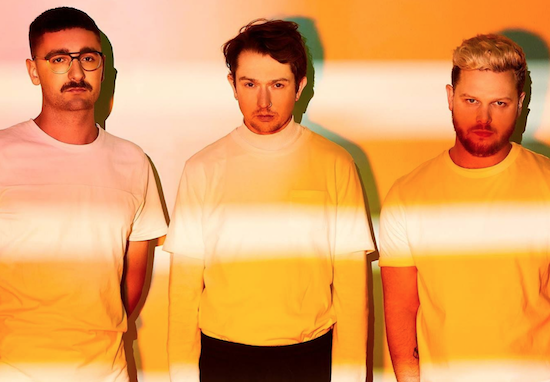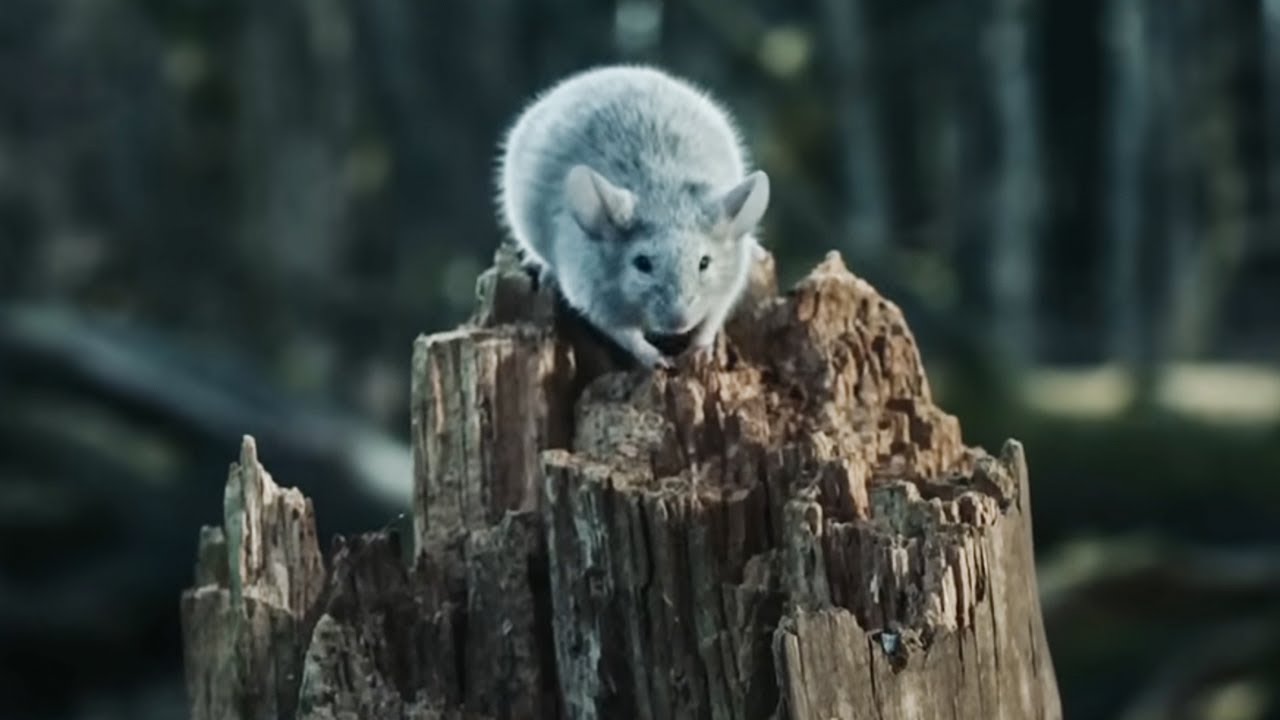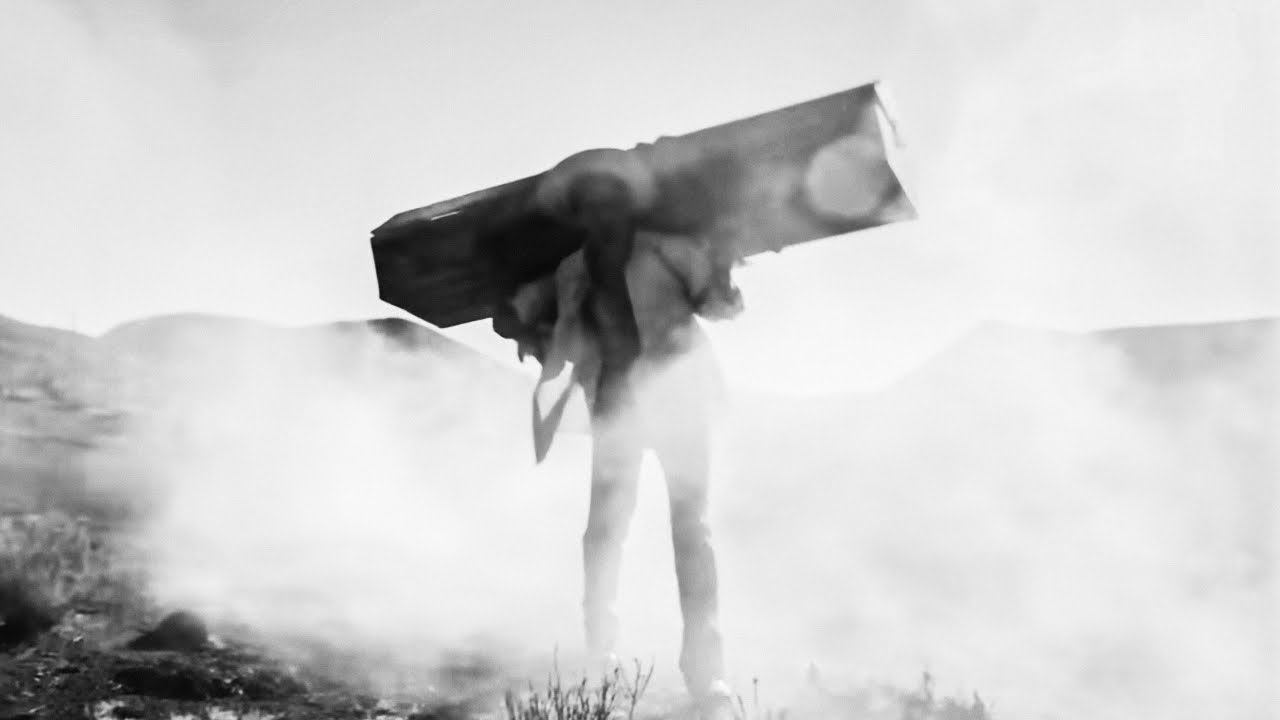It’s fair to say that, historically, tQ have been consistently disdainful of art-electro, math-rockers Alt-J. In 2012, on hearing the news of the band’s Mercury prize (won – impressively – for their debut album, An Awesome Wave), tQ pronounced Alt-J as "laughably vanilla." Later that year, editor John Doran interviewed Bryan Ferry and the Roxy Musician noted that alt-J looked as if they were "one step away from the dole queue," with tQ subsequently lamenting the rise of the “bafflingly popular indie scruffs."
But rise they did – Alt-J added an Ivor Novello award to that Mercury gong and broke into the major league with 2014’s This Is All Yours album – which went to number one in the UK, the top five in the US and saw the band play a 16-month world tour including a sold-out show at Madison Square Gardens.
Fortunately for me tQ is a broad church. I like Alt-J and have done since hearing the sinewy throb of early single ‘Tessellate’ at the back end of 2011. I’ve interviewed them twice before; the first time was very early on when they were still based in Leeds. They seemed genuinely delighted someone wanted to write about them. The second time was a few months later at a gig at a disused office block in Manchester, memorable for a mid-set fire alarm and full evacuation. At that point the band spoke wistfully about one day being in a position to buy new equipment to expand their soundscape.
Therefore, it was a very pleasant surprise to find out that the bods at tQ liked – nay loved – lead single, ‘3WW’, from their splendid new album, Relaxer. To be fair, it is an incredibly ambitious track; part-folk, part-hymnal lullaby and compellingly hypnotic.
This sequence of events means I get another crack at chatting to (two-thirds) of Alt-J. When we meet over a Skype video link, I remind singer/guitarist Joe Newman and keyboards/vocalist Gus Unger-Hamilton about the "laughably vanilla" comment. They just smile and we agree it would make a semi-decent album title.
Before getting into the making of Relaxer, talk turns to the post-tour comedown following 2014’s mammoth trek. Drummer Thom Green filled his time by releasing a solo album of electronica, High Anxiety, ("we were very pleased for him"), while Unger-Hamilton opened up a pop-up restaurant in – of course – London Fields (a project that "taught me a lot").
Newman admits to merely "watching a million films" as he is "happy doing nothing" – aside from forging a hugely successful career on Alt-J’s own artistic terms. And annoying the hell out of tQ in the process.
Can we start by talking about Relaxer? After you’d finish the previous world tour, did you have a vision for how you wanted any new material to sound?
Joe Newman: We spent a lot of time recording ideas and building up a database of future works, while we were working on the first and second albums. (That is still happening now for future albums.) So, we always have material; we never go into a room and try and figure what things are going to sound like, or what the material is going to be and we only bring a song out when it is time to give it fresh air and sunshine.
As with previous albums, Relaxer was produced by Charlie Andrew and recorded in London. What is about Charlie that you like so much and was there a temptation to try somewhere different for this record?
Gus Unger-Hamilton: Charlie has a good balance of creativity and organisation. He is quite rational. We do the crazy experimenting before we go to Charlie. We take him a mixed bag of ideas and he is good at knowing what will work. Plus, it’s a winning formula. We like Charlie. It would be a pointlessly destructive thing to work with a different producer. It might sour our great relationship with Charlie and may not yield good results. We could have gone to LA, Hawaii or the South of France, or wherever, but we like our home. Charlie is a family man. We all like to be able to go to the studio and do some work, and then go home in the evening. That’s a nice way for us to make an album.
I understand the logic, but you could be accused of staying within your comfort zone and not pushing yourselves.
JN: I think we push ourselves with our songwriting. We are definitely not trying to sound like our previous body of work – we are just interested in writing songs and we do it in a bizarre, leftfield way. Charlie is then good at making the songs sound like they should sound. We have a good system.
So, if we take ‘3WW’, the song that ‘won tQ over’, that sounds pretty progressive to me and unlike any of your past work. How did that track come about?
JN: A lot of the songwriting comes from different moments that have been pasted together over a period of time. For that song, the verse comes from something I was working on two years ago. Gus’ melody and lyrical ideas for the "wayward lad" introduction came at the end of last year. The chorus came about six months ago. Then, over a period of a couple of weeks, we Frankenstein-together the parts using Ableton.
GU-H: ‘Pleader’ was also written in stages, but ‘Hit Me Like That Snare’ was more spontaneous – we would start with a riff and then quickly begin to jam.
I like the line, "Fuck my life in half" in ‘Hit Me Like That Snare’.
JN: That came about when I was driving home one night and hit a puddle and aquaplaned. For about two seconds I thought I was going to hit the central reservation. My reaction was to shout, "Fuck my life in half." When I got home I wrote it down as I thought it was an interesting thing to say in that moment.
GU-H: I am going to be embarrassed the first time I sing that song, because I will be swearing on stage – in front of my family. I will go red and sing it with my eyes closed.
The album also contains a pretty extraordinary version of ‘House Of The Rising Sun’. How did you approach trying to update such an iconic song?
JN: It came about more from having some guitar chords and a melody. One day while I was working on them, it struck me to look at the ‘House Of The Rising Sun’ lyrics and see if it could help me figure out where I wanted to go with the story for the music. ‘House Of The Rising Sun’ was a folk song and the nature of folk music is to be passed down from one generation to the next. I thought it would be a nice opportunity for us to figure out the song ourselves.
Relaxer also includes quest appearances by Marika Hackman and Wolf Alice’s Ellie Rowsell. How did those collaborations come about?
GU-H: We see a lot of the songs as screenplays and when both Ellie and Marika are singing, they are playing female roles. For example, on ‘Last Year’, Marika is the former lover of the protagonist and she’s singing at his funeral. It’s almost like we were casting them for a part in the ‘films’.
As you have become more popular, has your songwriting approach changed, knowing that you are likely to be playing new songs to thousands of people in arenas and at festivals?
GU-H. I don’t think so, particularly. I feel like the sound has got more expansive and that is down to a natural confidence we have built up over the years, via learning how to write and through what we can achieve during the recording process. Definitely, there were songs on the album that we thought would be fun to play live and it’s undeniable that you are more aware of the context in which you will play that song. However, I wouldn’t say we are writing songs for arenas.
I’d like to ask you about how you manage Alt-J as a ‘career’. You are clearly a very successful band and one that seems to be completely in control of their artistic output. You also have allowed your music to be used commercially – how do you get the balance between artistic integrity and making money?
JN: I don’t think we see it as a balance. We don’t have a conscience about the idea of a band selling out to a company. Making money in the music industry can be incredibly difficult. And, if something is not incredibly difficult then we should take advantage of that. At the end of the day, this is a career for us and we don’t want to be doing any other job. You have to strike while the iron is hot and we have been lucky enough to have some things go our way, in that respect. We are very confident in our music and have discovered that quite a lot of people like our music as well – and like using it to sell their stuff. That’s fine by us. I don’t think we have felt that we have done a deal with the devil.
Have you ever turned down a commercial opportunity?
GU-H: We have turned down one or two offers, just when it didn’t feel right. We turned down McDonald’s. It was actually for the Ronald McDonald Foundation, which is a charity and it was only going to air in French-speaking Canada. However, even though it was for a charity, the only reason McDonald’s do that charity stuff is for the halo effect. It improves their image. We did think about it, because it was for charity. However, we decided it was still McDonald’s – and maybe worse, as it’d be almost more honest to do it to sell a hamburger, than to try and sell a clean image for a company.
JN: There was an offer from Walker’s Crisps, who wanted us to appear in an advert with Gary Lineker.
Don’t tell me you turned down working with footballing god and Twitter heavyweight Gary Lineker?
JN: We did. I think the idea was that he would have been trying to steal crisps from us. We didn’t do that because we didn’t want to be an act who played a role in the advert. They offered us a lot of money. That was an example where it wasn’t about the money, it was more about not wanting a comical stage rivalry with Gary Lineker. Plus, he is very good at selling crisps and we are not.
GU-H: We are good at eating crisps.
Of course, indie bands are not supposed to ‘sell out’ and play the commercial game – it’s not very ‘indier-than-thou’.
JN: Well, we don’t feel like an indie band. In fact, we have never felt part of a music movement. When we were in Leeds, we were very much on our own bubble, with our heads down making songs. We’d be asked about the Leeds music scene and who we were hanging out with – and we were on our own. So, I never thought of us as an indie band – and we have become a band that a largish group of people have got into – and that’s part of the reason we don’t think we are ‘sell outs’. We don’t subscribe to that way of thinking.
Do you think that’s part of why there is some ambivalence towards you in certain sections of the UK press. Why would tQ call a successful British band "laughably vanilla"?
JN: In my opinion, I don’t think it is about the music. If we were a different demographic or a different group of people – if we were working class or had a mixture of ethnicities – and we were more rock and roll, then we wouldn’t get accused of "celebrating normality" or being "laughably vanilla." Plus, I think we are quite close to those who fear us are most.
GU-H: It’s hard being white and middle class. That was a joke, obviously. Interestingly, we don’t get anywhere near the amount of backlash in America, as because we are British we are already exotic. However, we Brits are a nation of backstabbers. That’s cool, in a way, and I like British cynicism and I like the fact that we don’t just fawn over people. However, when it comes to us, why do we have to have a crazy personality and why is the music not enough? We never asked to be judged on anything other than the music. I have never said, "What do you think of me as a person? Isn’t it cool I went to private school?" I have never said that – but people just want to have a go, I guess. Also, because we have never presented the press with a cut and dry Alt-J ‘image’, they’ve decided there is nothing to us.
Does such criticism bother you at all?
JN: It doesn’t bother us. We just love the music we write and if we started releasing albums that we weren’t a 100 per cent happy with, I think any negative press would get to me, as I would secretly know they were right to a certain extent. However, in reality, we are very stable and that’s why we don’t mind what people say about us.
Finally, when we first met I asked you for your finest rock and roll moment. Back then you claimed to have none and could only cite the time that Thom had a migraine and was sick in a festival Portaloo. Five years on, have you got anything better for me?
JN: Not really. There is something but it’s not rock & roll. I developed this thing on the last tour that we called ‘tour toes’. I lost the feeling in my two big toes for about 16 months. I think – and this is a bit of a humblebrag – that it was a result of the amount of flying we were doing and being seated for prolonged periods of time. I got D.V.Toe.
Relaxer is out now via Infectious Music. alt-J play the following dates in the UK
September
04, Brighton, Brighton Centre
05, Margate, Dreamland
06, Bournemout, O2 Academy
08, Weston-super-mare, The Grand Pier
09, Blackpool, Empress Ballroom
11, Kingston upon Thames, The Hippodrome




